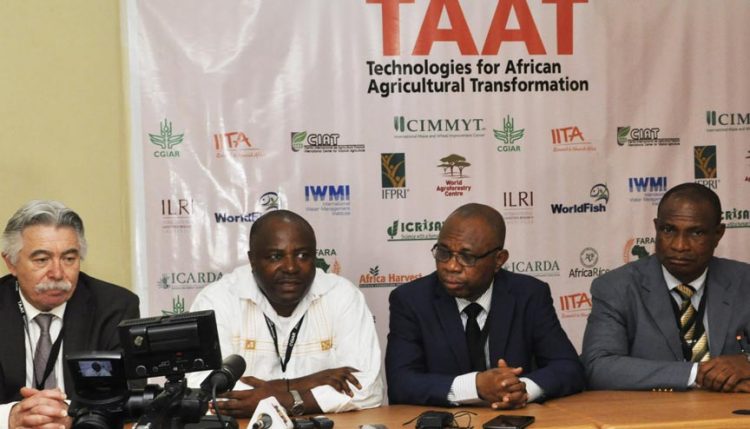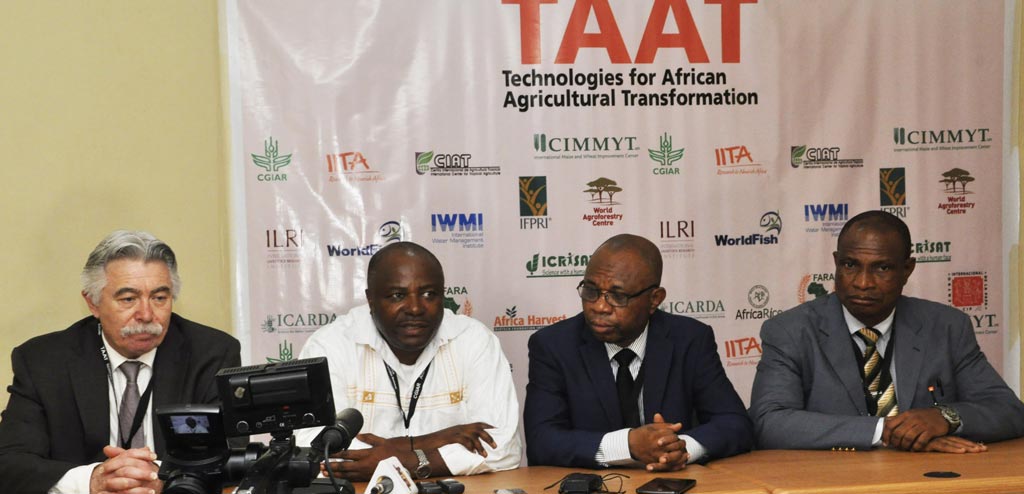
International and national partners convene at IITA to discuss AfDB’s initiative to transform African agriculture
More than 200 leading research and development partners and experts met at IITA, Ibadan, Nigeria, 12-14 April, to discuss a new initiative known as “Africa Feeding Africa”, or the Technologies for African Agricultural Transformation (TAAT) program. The TAAT program is a critical strategy for transforming agriculture on the continent that would ensure that Africa is able to feed itself through agriculture.

Media briefing with (L-R): J Wadsworth (Fund Council), N Sanginga (IITA), C Ojukwu, and J Chianu (AfDB).
The TAAT Program aims to eliminate extreme poverty, end hunger and malnutrition, achieve food sufficiency, and turn Africa into a net food exporter as well as set Africa in step with global commodity and agricultural value chains.
Modernized, commercial agriculture is seen as the key to transforming Africa and the livelihoods of its people, particularly the rural poor.
To carry out these objectives, the African Development Bank (AfDB), working with IITA and other partners, has identified eight priority agricultural value chains relating to rice sufficiency, cassava intensification, Sahelian food security, savannas as breadbaskets, restoring tree plantations, expanding horticulture, increasing wheat production, and expanded fish farming.
The Forum for Agricultural Research in Africa (FARA) and the CGIAR Consortium and 12 of its 15 international agricultural centers active in Africa support this initiative by the Bank and the co-sponsors to revitalize and transform agriculture through the TAAT program. The 3-day workshop was organized by IITA in partnership with the Support to Agricultural Research for Development of Strategic Crops (SARD-SC) project for AfDB, which is funding this mega initiative.
“IITA supports AfDB and partners in ensuring that TAAT is effectively set up,” said IITA Director General, Nteranya Sanginga. “The whole CGIAR system is backing this huge initiative with its research infrastructure in collaboration with FARA, AGRA, Africa Harvest, and the national partners. Everybody wants to ensure that this initiative succeeds.”
More about TAAT in a special issue to come out soon.
